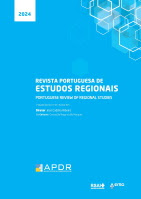Bibliometric analysis of the research on St. James Way performed for the period 1997-2023
Leida Costa, Paula Remoaldo, Hélder Lopes, José Cadima Ribeiro, Vítor Ribeiro e Rafaela Silva
Abstract
The aim of this paper is to perform a bibliometric analysis of publications related to the St. James Way indexed in the Scopus database in the period 1997-2023. This is the first time that this kind of study is done concerning this period of 26 years. 139 studies and several variables were taken into consideration, such as, the type and year of publication, subjects approached, methods, techniques used, and country of publication. It was noted that the amount of the studies related to the St. James Way is reduced, and that the first study indexed in Scopus database dates back to 1997. The data collected in the Scopus database was analyzed using the VOsviewer tool. This tool allowed the generation of a set of thematic network maps using analysis of keyword occurrences, documents and countries with the highest number of publications, journals with the highest number of publications and most productive authors. It was found that there is a relationship between the keywords inserted in the database, that is, there are authors who, when approaching the Way, used three to four common keywords ("pilgrims", "tourism", "religion", and " St. James Way"). The subject of St. James Way attracts research from many scientific areas, such as Economy, Arts and Humanities, Social Sciences, Law and Environmental Sciences. Since 2011, the number of publications indexed in Scopus increased a lot, but it was since 2019 that the number increased in a more substantial way, along with the diffusion and interest in this religious and cultural route. Between 1997 and 2015, the studies had a more general nature, with descriptive stories about the Camino, and its evolution since the medieval age. Since 2016, the number of empirical studies has been increasing. This study can contribute to the evolution of research on religious tourism and pilgrimage, especially the one concerning the St. James Way routes.
Keywords: Bibliometric
Study; Scopus Database; Camino de Santiago; St. James Way; VOSviewer.




